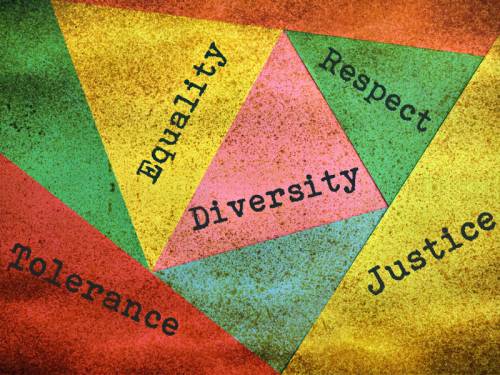Ancient advice is more than a catch
September 3, 2022
 Even though it doesn’t appear in the Book of Order — I looked — perhaps there’s no phrase, for better or worse, that sums up Presbyterianism than “decently and in order.” If something exists in our life together, we Presbyterians have a committee and — if we’re really on our game — an acronym for it. However, there’s an important reason for our fascination with process and structure: We value shared governance.
Even though it doesn’t appear in the Book of Order — I looked — perhaps there’s no phrase, for better or worse, that sums up Presbyterianism than “decently and in order.” If something exists in our life together, we Presbyterians have a committee and — if we’re really on our game — an acronym for it. However, there’s an important reason for our fascination with process and structure: We value shared governance.
But communal discernment can get messy quickly. The Apostle Paul knew that. He penned our favorite phrase in his first-century missive to the church in Corinth, which was just as much a hot mess as we are today in the 21st century. The Corinthians were extraordinarily diverse ethnically, linguistically, politically, financially, professionally, educationally and religiously, and they unsurprisingly faced major community-building challenges.
In the letter we know as 1 Corinthians, Paul used many examples to demonstrate that glorifying God and edifying each other often entails getting our own egos and sense of privilege out of the way.
While the phrase “decently and in order” (1 Corinthians 14:40) specifically comes in a discussion about exercising spiritual gifts during worship, when seen in the context of the entire letter, it’s applicable — and essential — to all areas of our life together as Christians.
Looking into the Greek, we can see that the term Paul uses for “decently” brings notions of appropriateness, respect and dignity. “Order” speaks to the stability and reliability of military regiments. Remembering that Paul is writing to political officials and day laborers, functionally illiterate folks and trained scholars, I suggest that he’s trying to teach these lessons:
Respect the people God has put in your community. Get to know them for who they are and meet them where they are.
Do everything you can to facilitate people’s spiritual gifts in their full variety. And, conversely, use your gifts in constructive ways. To cherish the gift is to love the giver.
Remember that the primary purpose of Christian community is the enrichment of our relationships with God and with one another. Keep the main thing the main thing.
When General Assembly is upon us (or as I like to think of it, “Politypalooza”), these lessons come into sharp focus. While it may appear that we’re quibbling over “wills” and “shalls,” our commissioners, advisory delegates, advocates and corresponding members are called to clear the way logistically so our congregations can better focus on worship, fellowship and service.
Now, can we Presbyterians get carried away and focus so heavily on decorum and procedure that we miss the reason behind it? Oh, yeah. And can we use that decorum and procedure to erode community instead of building it? Sometimes, we can unfortunately. But that’s where Paul’s wisdom comes in.
So, if you find yourself engaged in decision making with other Presbyterians, remember we believe in doing things “decently and in order,” which means: Use your power to embrace and respect everyone God has put into your community.
Empower them to engage their gifts fully and constructively — even if they’re not what you expect. And above all, keep the main thing the main thing: Love God and love one another.
Jodi Craiglow serves as recording clerk for the Presbytery of Chicago. She is a ruling elder at First Presbyterian Church of Libertyville, Illinois, and a member of the PC(USA)’s Committee on Theological Education.
Let us join in prayer for:
PC(USA) Agencies’ Staff
Christy Dickson, Operations Specialist, Presbyterian Foundation
Dawn Diggs, Operations Reconciliation Specialist, Presbyterian Foundation
Let us pray
Eternal God, grant us sufficient confidence in ourselves, in your Word, and in that inner voice that confirms the truth of your word, to overcome fears and to lead the people through the narrow gate. Amen.


No comments:
Post a Comment